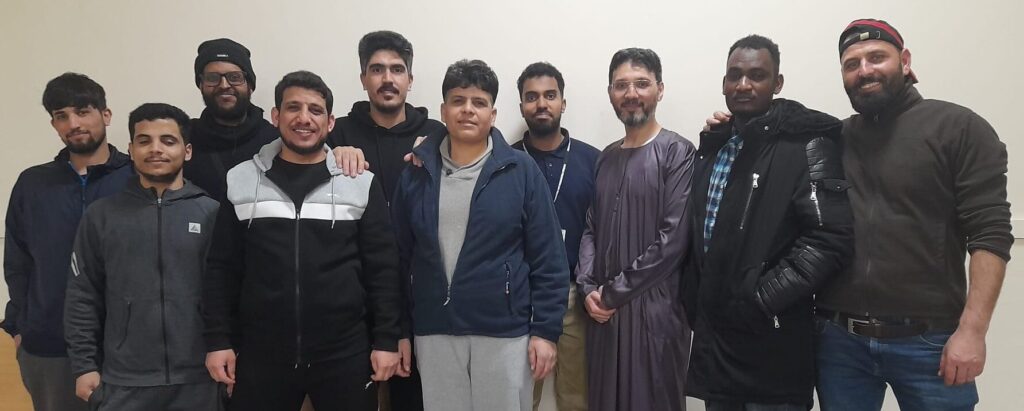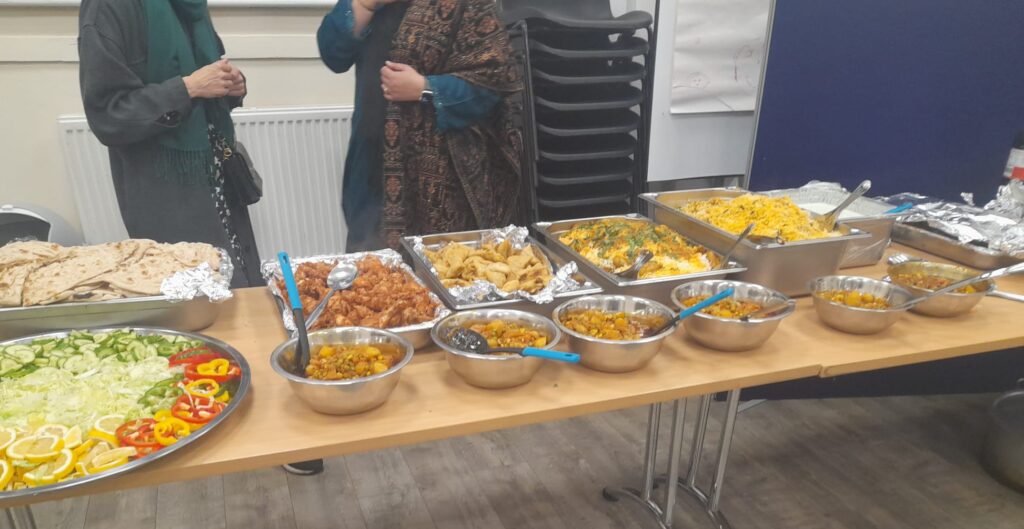Local people have been providing an iftar meal for refugees staying in a Yorkshire hotel. Iftar is the meal eaten after sunset by Muslims to break their fast every day during Ramadan.
Three of the people at the meal talk about what this means to them.
Abdulmoiz is from Sudan.
“I’ve found Ramadan very difficult because I’m away from home. Before, we used to eat outside in groups with everyone, with our neighbours, to have iftar, so it’s very different here.
The citizens here in the UK are very open minded, very welcoming. I like how they respect religious traditions.
I want to be treated fairly, with respect. I want to be treated as human. I lacked that, where I came from. We hope in this country we can live normally. I have a lot of ambitions for the future.”

Mahmoud is from Syria
“I have kids. Not having them with me for Ramadan—I can’t explain how difficult it is. I miss my kids, I really miss my family. I lost one of my sons last year, it’s very difficult. I’m trying to move on, but it’s tough.
The iftar meal relieved our stress and changed our mood, we felt so much better afterwards. I’d like to thank all the charities, Unity Centre, REMA, and Refugee Council. They go above and beyond, I’m very grateful.
I’ve lost my country.
My hope for the future is to one day be reunited with my kids, and let them follow their education, and teach them well. I’ve lost my country and I only have here, so I want to settle here and provide for them.”

Azzizum, who lives locally, explains how important it was to him to help.
“I donated to the food, it’s the best investment you can make. It’s so rewarding to see that help instantly, to see the effect. In the hotel, their eyes are turned downwards, there’s a slope in their shoulders. But at the meal, they were much brighter, they were like different people.
I brought my family, we had kids helping out serving food. It’s good to show young people as well, the effect it has.
The guys were extremely friendly, they all wanted to help arrange the event and tidy up afterwards as well. We didn’t speak the same language—but they were very friendly, warm young people.
They’re in a sort of holding pattern, they’re waiting on decisions, not able to get on with their lives. The emotional anxiety they’re constantly facing is really difficult. They feel disconnected from their homeland and the receiving land, they’re neither here nor there. To ease that anxiety, to feel there are people here who care, and want to help—I think that’s a good thing to do.”
“Every evening your family comes together to break the fast. For us it’s almost like Christmas dinner. I can’t imagine what it’s like to have to do that on your own.” ■
Events like this show how all around the country, communities really want to welcome and support refugees in their area—and how refugees are eager are to connect with their new communities and become a part of society.
Help make a difference in the lives of refugees in the UK
Your generosity helps refugees settle into safe new homes, get support to heal from the trauma of conflict, find rewarding jobs and so much more.
Donate today

